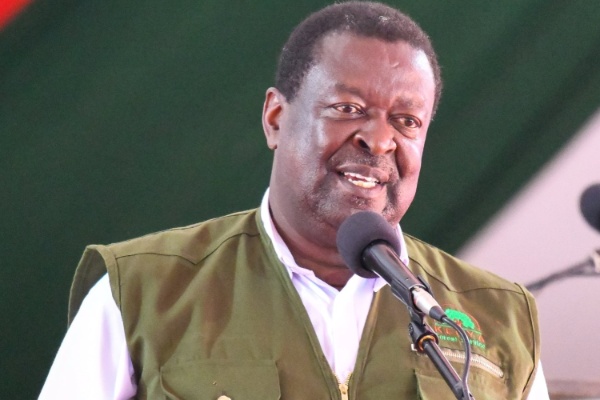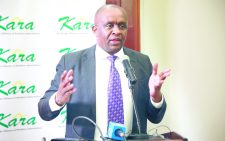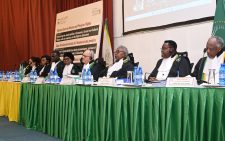Mudavadi clout grows in Ruto CS shuffle

Prime Cabinet Secretary Musalia Mudavadi is perhaps the greatest beneficiary from Wednesday’s Cabinet reshuffle announced by President William Ruto in the first reorganisation of his government since ascending into power in September last year.
The shakeup also comes two months after Ruto, during the signing of Performance Contracts by Cabinet and Principal Secretaries, said he was greatly concerned about the level of incompetence of some of the appointees. He said that some did not know what their job entailed and were falling short of their constitutional duty of advising him.
“The moment I know more than you in your ministry, then you must begin to understand that something is very wrong. Explain to me how you will advise me if you have less information than I do,” Ruto told the Cabinet in August.
Controversial appointment
The appointment of Mudavadi into the Prime Secretary office has been controversial with several petitioners moving to court to compel President Ruto to scrap the position terming it unconstitutional.
The role of the PCS as per Executive Order No. 1 of 2023 is to assist the President and the Deputy President in the co-ordination and supervision of Government Ministries and State Departments.
A recent poll said a majority of Kenyans were opposed to the creation of the Office of the Prime Cabinet Secretary but supported the establishment of the office of the Leader of Official Opposition.
Similar sentiments were echoed during the public hearings of the National Dialogue Committee (Nadco) whose sittings ended on Tuesday at the Bomas of Kenya.
Many of the submissions made before the Kimani Ichungwah and Kalonzo Musyoka-led committee called for the abolishing of the PCS office. They described it as illegal and said it was adding to government expenditure at a time when the country was experiencing an economic downturn.
Extra docket
After being handed an extra docket now serving as the Foreign Affairs and Diaspora Cabinet Secretary, Mudavadi now a lifeline to be in the Cabinet legally even if the petitions filed in court succeed.
The move is Ruto’s fallback strategy should the courts or the bipartisan committee in its finding recommend to Parliament the removal of the Amani National Congress (ANC) party leader from the position of Prime CS.
Should the office be declared unconstitutional by any means, Mudavadi will still substantively be in the Cabinet as the CS in charge of Foreign and Diaspora Affairs.
Mudavadi becomes the ambassador of the Kenya Kwanza government to market Ruto’s Bottom Up Transformative Agenda (BETA)as well as implement the foreign policy. A full in-tray of diplomatic duties greets him as he walks into the Foreign Affairs office.
Mudavadi who has served in former governments will oversee the implementation of President Ruto’s diplomatic agenda key among them the opening of Kenyan borders for citizens of other countries without visa requirements as long as they hold other valid travel documents.
By liberalising entry into Kenya, Ruto aims to remove barriers to the movement of people, services and goods into the country thus growing the economy by positioning Kenya as an attractive investment destination.
Fury is building up about the deployment of Kenyan policemen to Haiti to fight criminal gangs vehemently pitched by his CS Alfred Mutua who recently said that over 1,000 officers were already learning French ahead of their mission.
Kenyans in general have criticised the plans arguing that the police officers do not have the training capacity to handle the armed gangs in a far foreign yet back home police have failed to eliminate bandits and cattle rustlers who continue to terrorise the North Rift region as Al-shabaab terror group wreak havoc in the coast town of Lamu.
Despite the UN Security Council approving the mission, Opposition leader Raila Odinga said Haiti is ‘too dangerous’ for Kenyan police adding that the country may live to regret when their (police in Haiti) coffins start arriving. It is now the prerogative of Mudavadi to advise the President on the suitability of Kenya police to fight the Haiti gangs.
Mudavadi will be required to resolve the plight of Kenyan migrants, especially in Arabic countries who have been working in deplorable conditions and sometimes tortured to death by their masters abroad.
His starting point should be to unravel a complex web under which Kenyan agencies recruit innocent female workers as domestic workers for Arab employers and then leave them at their own devices once they land in the gulf.












